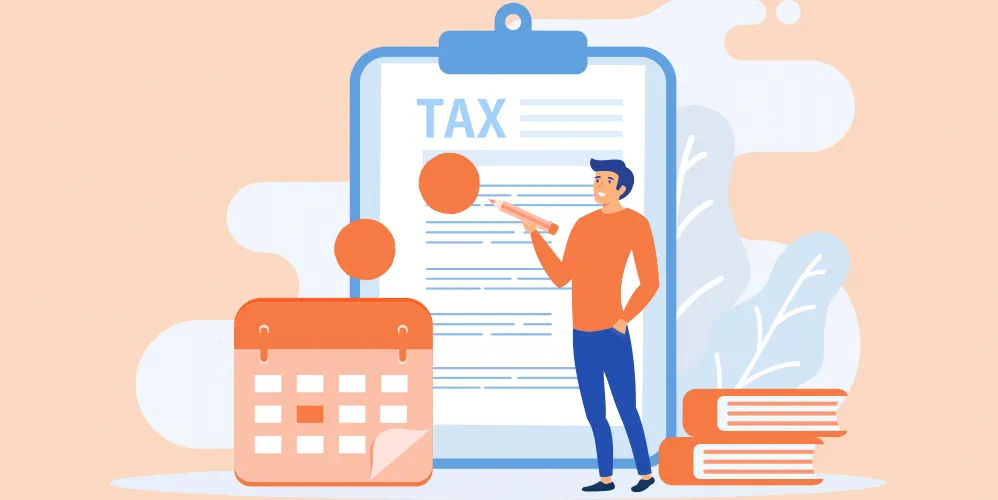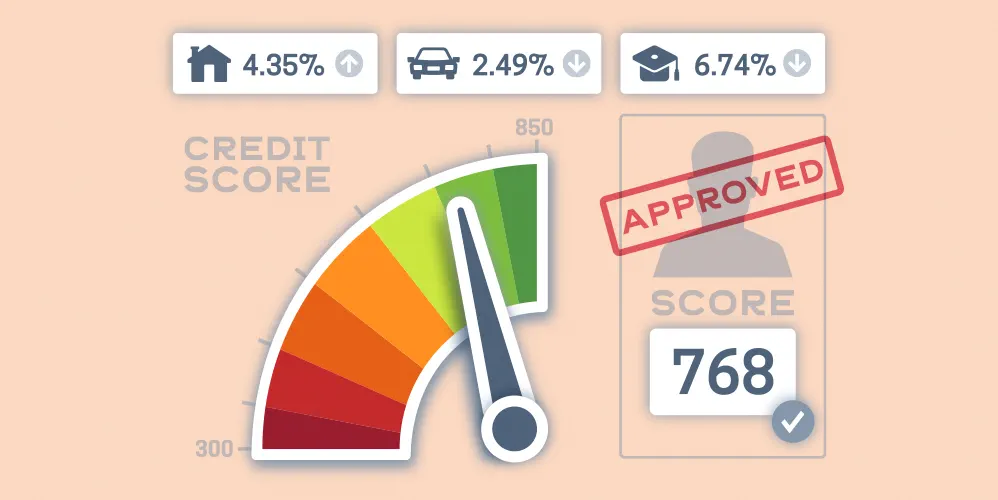
Benefits of Reverse Mortgage Loans for Senior Citizens
09 Sep 2022

Table of Content
Mrs Patel is a 65-year-old retiree. She lives in a self-owned flat while her son resides overseas. Mrs Patel is unable to keep up with the rising costs with her savings alone. She seeks financial advice from her relationship manager, who informs her about Reverse Mortgage Loans, where she can make money using her self-owned property. Let's understand what a Reverse Mortgage Loan (RML) is and how it works.
What Is A Reverse Mortgage Loan?
A Reverse Mortgage Loan is essentially a loan against property aimed at providing an income source to senior citizens. In a Reverse Mortgage, a senior citizen who owns a house can mortgage the property with a bank. Instead of paying EMIs to the bank like with a regular home loan, the bank makes monthly payments to you in a reverse mortgage. Moreover, you can occupy the house and are not required to repay the loan.
How Do Reverse Mortgages Work?
Individuals above 60 years of age can mortgage their loan-free and self-owned residential property to receive regular income. Individuals living in rented accommodation are ineligible for Reverse Mortgages. Banks typically offer 60% to 80% of the property's market value, but the maximum loan amount is capped at Rs 1 Crore. The banks make lump sum, monthly, quarterly, half-yearly or annual payments to you over 15 to 20 years.
The most appealing feature of Reverse Mortgage is that the borrower is not required to repay the loan. They can continue to live in the house. After the borrower's demise, the bank can sell the property or wait for a legal heir to repay the loan amount and take back the property. After the death of the primary applicant, their spouse can continue to occupy the property until death.
Example Explaining Reverse Mortgage Loans
For example, Mrs Patel chooses the Reverse Mortgage route to enjoy a regular income. The bank evaluates the property and offers her Rs 80 Lakh as the RML amount with a 15-year tenure and monthly payment plan. Mrs Patel continues living in the house while receiving monthly income to finance various expenses. She pays all the house-related costs, such as maintenance, property tax, insurance, etc., while alive. However, upon Mrs Patel's unfortunate demise, if her son wishes to take ownership of the house, he must pay back the loan amount. Otherwise, the bank can sell the property and recover the loan amount.
In the above example, Mrs Patel will not receive Rs 80 Lakh entirely. The bank will disburse monthly payments amounting to Rs 80 Lakh at the end of the tenure, including the interest payment. So for a 10% interest rate, Mrs Patel will receive Rs 19,302 as the monthly payment. After 15 years, the bank has paid a total of Rs 34,74,360. (19302 x 180 months). The difference between the loan amount and the actual amount paid by the bank is the interest amount.
NHB Guidelines for a Reverse Mortgage Loan
The National Housing Bank (NHB) is a housing finance regulatory body under the Reserve Bank of India. It has set the following guidelines for Reverse Mortgage Loans in India.
- Reverse Mortgage Loans do not apply to commercial properties.
- Homeowners can take back the property anytime by repaying the loan amount.
- Lenders can pay up a maximum amount of Rs 50,000 per month.
- Homeowners use the loan amount to renovate or extend the property for medical emergencies and other daily expenses.
- Lenders can only disburse a maximum of Rs 15 Lakh in lump sum payments, which the homeowner can use for medical treatment for self, spouse and dependents only.
- Lenders must provide up to 2 months' notice before selling the property.
How Much Do Reverse Mortgage Loans Cost?
Following are the costs associated with Reverse Mortgage Loans:
- Interest rate: A Reverse Mortgage is a type of a loan wherein banks charge fixed or floating interest on the pay-outs rather than on the entire loan amount.
- Insurance: Reverse Mortgage insurance is a mandatory cost that borrowers must bear.
- Pre-payment/Foreclosure: Per NHB regulations, lenders may not levy pre-payment penalties.
Borrowers must also incur stamp duty costs, registration charges, property survey and valuation fees, third-party verification costs, appraisal and inspection fees, title examination fees, etc. However, the lender must include these costs in the Reverse Mortgage Loan product offerings.
Reverse Mortgage Loan Eligibility
The following are the Reverse Mortgage Loan Eligibility Criteria:
- You should be 60 years or older.
- If you apply jointly with your spouse, your spouse's age must be no less than 55 years.
- You may mortgage a self-acquired and self-occupied residential property in India. The property cannot be a gift or an inherited property.
- The residential property should be debt-free.
- The residual life of the property should not exceed 20 years.
How Senior Citizens Can Benefit From Reverse Mortgage Loans
As a senior citizen, you enjoy the following benefits:
- Multi-purposeful: With the RML pay-outs, you can finance your everyday household expenses, travel, and medical bills. Except for the lumpsum pay-out, there are no end-use restrictions.
- Tax Benefits: Under Section 10(43) of the Income Tax Act, 1961, the RML pay-outs are not to be treated as income. Therefore, borrowers enjoy tax exemption on Reverse Mortgage Loans. Moreover, the RML amount spent for home renovations is eligible for tax deductions.
- Loan repayment is unnecessary: Repaying any debt during old age is nearly impossible. With RML, the bank has the right to sell off the property to recover the loan amount after the borrower's demise. Hence, you need not repay the loan.
Bottom Line
The standard monthly income for most people ceases upon retirement, whereas their medical costs increase, and their pensions may not be sufficient. At such a time, the Reverse Mortgage Loan serves as a lifesaver. Bank of Baroda offers Baroda Ashray Reverse Mortgage Loans to senior citizens looking for a regular income source. Call us on 1800 5700 or visit your nearest Bank of Baroda branch for more details.
Popular Articles
Tag Clouds
Related Articles










Guide to Getting Agriculture Loan: Application, Eligibility & Required Documents
-
Disclaimer
The contents of this article/infographic/picture/video are meant solely for information purposes and do not necessarily reflect the views of Bank of Baroda. The contents are generic in nature and for informational purposes only. It is not a substitute for specific advice in your own circumstances. Bank of Baroda and/ or its Affiliates and its subsidiaries make no representation as to the accuracy; completeness or reliability of any information contained herein or otherwise provided and hereby disclaim any liability with regard to the same. The information is subject to updation, completion, revision, verification and amendment and the same may change materially. The information is not intended for distribution or use by any person in any jurisdiction where such distribution or use would be contrary to law or regulation or would subject Bank of Baroda or its affiliates to any licensing or registration requirements. Bank of Baroda shall not be responsible for any direct/indirect loss or liability incurred by the reader for taking any financial decisions based on the contents and information mentioned. Please consult your financial advisor before making any financial decision.
Loan Against Shares - What You Need To Know
Are you in need of urgent funds? Have you invested a significant sum of money in the stock market? Did you know you can get a loan by pledging your shares? Yes, you can take out A Loan against Shares, a type of secured loan where your shares act as collateral. Lenders typically offer a high loan amount, levy competitive interest rates, and provide flexible repayment tenures. Plus, you only have to pay interest on the loan amount you use and not the entire principal loan amount. Read on to know more about what shares are, how to get a Loan Against Shares, the importance of a DEMAT account and how you can open an online DEMAT account.
Key Features & Benefits of a Gold Loan
When you require funds urgently, you can consider using your gold as collateral to obtain the funds your need. Gold Loans are secured loans offered by most banks and non-banking financial companies (NBFC). The lender assesses the current market value of the gold and determines the loan amount. Such a loan helps you get access to cash instantly. Let us analyse the various features and benefits of Gold Loans, the loan application process, and more. Read on.

